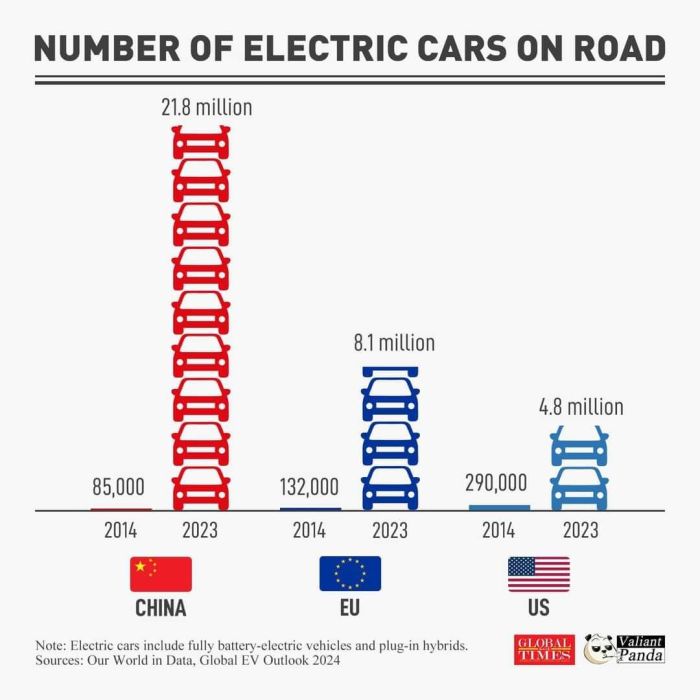Why does China dominate the global electric car market?
Posted 1 year ago
The pace of the auto industry is changing, and it is moving toward electric vehicles (EVs). In the race for such cars, China emerged as the leader.
To understand China's situation, it is essential to understand the scale of its success. Over 20 million electricity-fueled vehicles have made it onto China's roads, which, as per 2024 projections, will make up more than half of the world's total EV stock. Prominent EV makers in China are BYD, NIO, and Xpeng, which sell EVs.
China's motives stem from many sources – strategic and nationalism. First up is the issue of state strategy. The timeline of planning and providing state support to its electric car industry is nearly a decade long. Several EV-friendly policies encouraged the development of the market, including generous subsidies to the consumers, favorable tax policies, and investment in the charging infrastructure.
Second, electric vehicles have been integrated into China's industrial policy. At a time when every country stresses indigenous technology in all aspects of the economy, it is no secret that EVs in China are seen as a way to reduce its dependence on crude oil imports and a future fertile sector for the economy. The emphasis on indigenous technology means that China is not only reducing its reliance on foreign oil but also developing its own expertise and capabilities in the EV sector. The authorities are battling persistent air pollution while seeking to further its economy by embracing electric vehicles. Still, they are also molding the country into the next pastry chef of the clean energy industry.
Urbanization, a key factor in China's electric vehicle revolution, has significantly influenced the country's transportation landscape. With over 1.4 billion people, many of whom reside in densely populated urban areas, the government has actively promoted electric vehicle usage as a means to reduce pollution and fuel consumption. The rapid development of public charging stations, encouraged by local authorities, has further facilitated the adoption of EVs.
One of the most intriguing aspects of China's electric vehicle leadership is the cultural shift towards sustainable living. In cities like Shanghai and Beijing, owning an electric vehicle is not just a matter of prestige, but also a statement of one's affluence and concern for the environment. This societal transformation, mirroring the country's rapid technological advancement, has significantly boosted the adoption of EVs.
Nonetheless, China's electric vehicle market share still has hurdles. Pressure is increasing as the market matures, and there is a growing concern about how long the subsidies will last. Also, the competitive landscape is becoming fiercer with other countries on the way, such as Tesla, which has now started to build cars on Chinese soil.
China's ambition in what it is trying to achieve is a totally different phenomenon. In a world scarred by the catastrophic impacts of climate change, the electric vehicle revolution in China offers a vivid hope of what can be accomplished when industrial policy, government, and culture converge. China's dominance in the EV market could potentially set a benchmark for other countries, encouraging them to adopt similar strategies and technologies, thereby accelerating the global transition to electric vehicles.
At present, China is the world's leading manufacturer of electric vehicles. If other countries are attempting to electrify in the future, it would be helpful for them to learn from China's blueprint.





